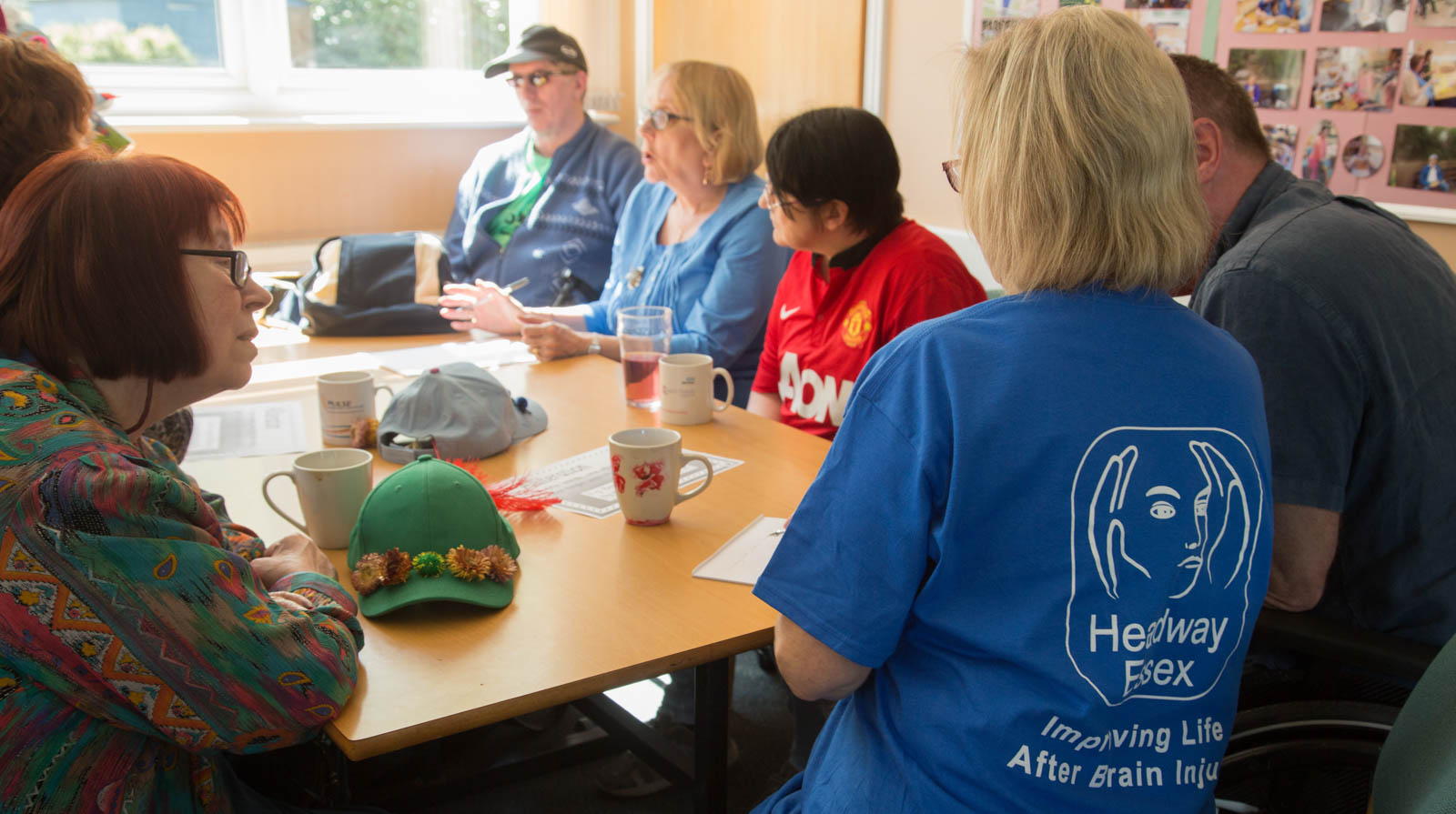We’re here to make sure you do not have to face living with an acquired brain injury alone.
It could be that you are unsure of what type of support you need and what may be available to you. Or perhaps you would just like to talk to someone who has an understanding of brain injury. Either way, we’re here to help.
The team’s understanding of acquired brain injury and their knowledge of other services and organisations means they can help you navigate what other support you might be able to access.
Our caseworkers can help resolve issues affecting your quality of life at home and in the community. They can provide you with direct, emotional and practical support and advice to help you cope and manage the changes in your life following your brain injury.
We also provide face to face social groups, educational groups and support groups, alongside a variety of groups that can be accessed online.
The Headway Essex Support Line is available for you to call 8.30am to 4.30pm Monday to Friday (except on public holidays). Messages can be left out of hours and will be responded to.
To contact the Headway Essex support line, please call 01206 845945 (option 3) or email us at abisupport@headwayessex.org.uk
To contact the Headway Essex support line, please call 01206 845945 or email us
Support Groups
Many people who have a brain injury find our support group meetings very beneficial. The groups provide you with an opportunity to meet others who have a brain injury, to share information and to hear from experts in brain injury care and rehabilitation.
We run five support groups each month across Essex, in Benfleet, Chelmsford, Tendring, Colchester and Epping.

Brain Injury & Me Programme
Designed to provide focused support for you and your family following brain injury, the programme helps with getting life back on track following your injury.
These groups are run according to demand and take place on one day a week over 8 – 10 consecutive weeks. The course covers areas such as:
- Effects of brain injury
- Anatomy, physiology of the brain and managing fatigue
- Identifying and managing attention deficit
- Causes of memory failure and coping strategies that help
- Emotions and behaviour
- Occupation/work – getting back to work/volunteering or training after injury
Online Groups
Online groups are a great option for those who find it hard to join face to face groups or struggle with travel due to fatigue or other symptoms associated with their brain injury. Everyone attending is assured of a very warm welcome. We currently offer the following groups online:
Monthly Social Group
Meet others in a similar situation, get peer support or just chat and listen and enjoy the company. Meets the third Wednesday of every month – 2.30pm to 3.30pm.
Monthly Quiz
A chance to socialise and have some fun. Meets the second Wednesday of every month – 2.30pm to 3.30pm.
Creative Writing Group
Whether you want to improve your writing skills or just have fun writing with others, then join our creative writing group. Meets the fourth Wednesday of every month – 2.30pm to 3.30pm.
To register your interest in any of our groups or programmes please call 01206 845945 (option 3) or email us at abi-support@headwayessex.org.uk

